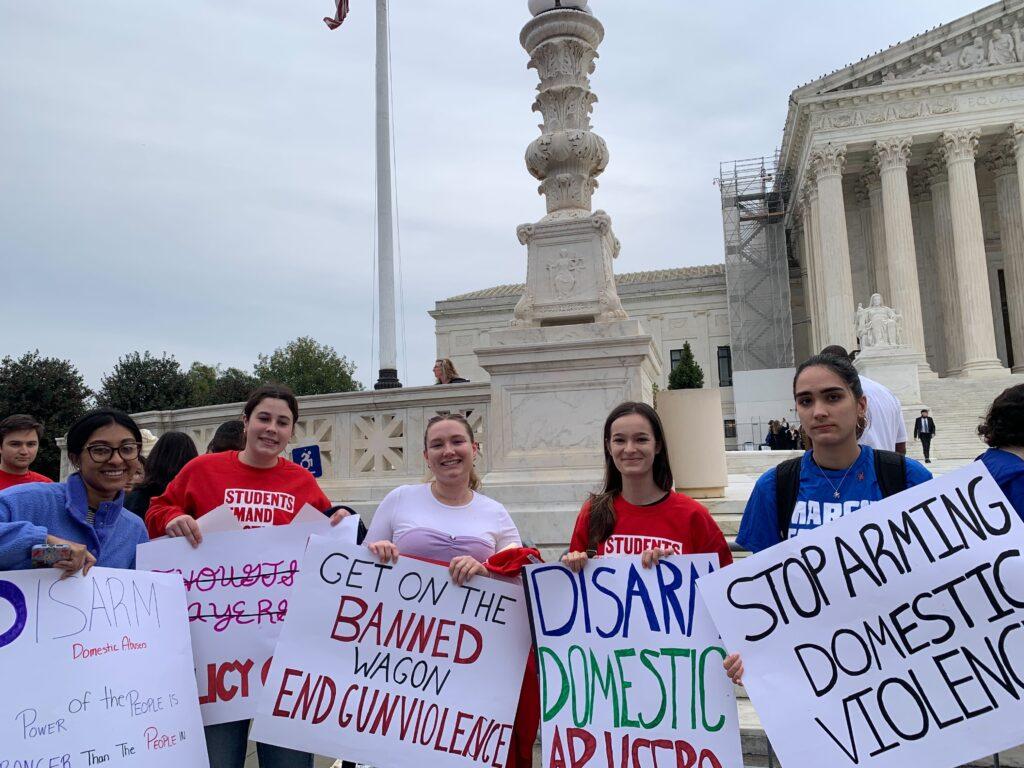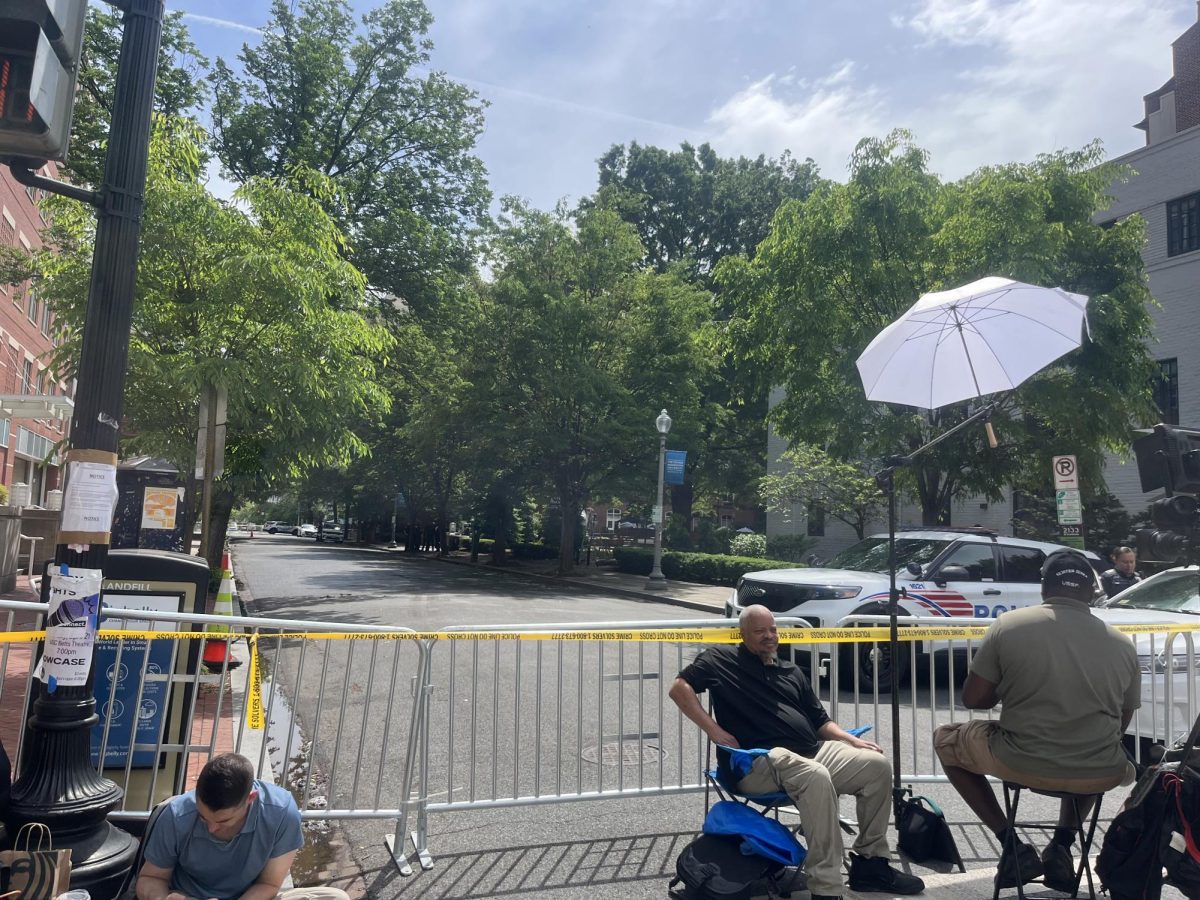Georgetown University students rallied in front of the Supreme Court on the day of oral arguments in United States v. Rahimi, a case which will decide whether domestic abusers have a right to gun ownership.
Gun violence prevention organizations Georgetown March For Our Lives and Students Demand Action as well as H*yas For Choice joined in a rally before the hearing of the case Nov. 7. At the rally, over 200 people, including 14 Georgetown students, showed up to support victims of domestic abuse and call for red-flag laws. Actress Julianne Moore, Sen. Amy Klobuchar (D-Minn.) and former representative Gabby Giffords (D-Ariz.) all spoke to the crowd about the need for gun restrictions.
In the case, the Court’s justices will decide on the constitutionality of a federal law prohibiting gun ownership by people under domestic violence restraining orders. The case comes to the court as Texas man Zackey Rahimi was charged with illegal firearm possession after publicly shooting a gun while under a domestic violence restraining order. The U.S. Court of Appeals for the Fifth Circuit overturned his conviction, ruling that this law violates the Second Amendment.
Gun legislation advocates say a ruling in favor of Rahimi would significantly weaken gun laws and put women and children at risk of domestic violence. On average, 110 Americans are killed by guns daily, 70 women are shot and killed by an intimate partner every month and over 4.5 million women have reported being threatened with a gun by an intimate partner, according to Everytown for Gun Safety, a nonprofit organization that advocates against gun violence.

Emma Vonder Haar (CAS ’26), the co-leader and founder of Georgetown’s chapter of Students Demand Action, a gun violence prevention nonprofit, was in charge of organizing Georgetown students to go to the rally.
Vonder Haar said domestic violence goes hand-in-hand with gun violence.
“Most people don’t think of domestic violence and its relationship with gun violence,” Vonder Haar said. “Domestic violence is often forgotten about because it mainly affects women, it mainly affects black and brown women, and those are communities that are marginalized.”
Vonder Haar said she was inspired to join in the movement for gun violence prevention after witnessing a shooting as a child.
“Hearing the stories of the survivors on the steps of the Supreme Court, just every story really solidifies why we do the work we do, even when it’s hard,” Vonder Haar told the Hoya. “We should be ashamed that over 110 Americans are killed every day by guns and that over 70 women a month are killed by domestic abusers.”
United States v. Rahimi is the Supreme Court’s first Second Amendment rights case brought before the Court since New York State Rifle & Pistol Association v. Bruen, in which the Court ruled that the Second Amendment right to self-defense exists both in and outside of the home. The Rahimi case brings gun rights back to the Court for possible clarification on that test to determine whether the right to bear arms should stand regardless of criminal status.
Ari Kane (CAS ’24), the chapter lead for March For Our Lives Georgetown, said gun violence is preventable and students can take measures to end it.
“Guns are something that makes us less safe, and there is a way to end gun violence. We just need to make the choice to end it,” Kane told The Hoya. “If you’re into politics, joining our lobby days. If you’re really artistic, going to our art builds and teach-ins and going to rallies. There are so many different ways that you can use your own skills as just a person, not even an organizer.”
Elinor Clark (CAS ’27), a rally attendee, said events like this rally are crucial in taking a stance with survivors.
“A lot of times this harassment can turn violent,” Clark said. “It is really important to show solidarity with survivors of domestic and gun violence. We, as students, have an obligation to use our voices for good.”
81% of American women are survivors of sexual harassment, according to the National Sexual Violence Resource Center.
Vonder Haar said organizing for gun violence prevention in Washington, D.C. is particularly important because of the city’s rate of gun violence.
“It can be difficult to do this kind of organizing within D.C. It’s a different kind of challenge because D.C. has the highest rate of gun violence in the nation, the highest rate of homicides,” Vonder Haar told the Hoya.
Vondar Haar added that the consequence of arming domestic abusers is self-explanatory.
“It doesn’t take a fortune teller to tell you what will happen when arming domestic abusers,” Vonder Haar said.




















